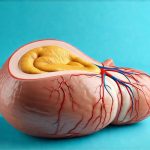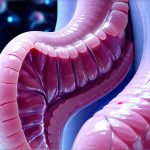Occasional indigestion – that uncomfortable feeling of fullness, bloating, burning in your upper abdomen, or even nausea after eating – is something most people experience at least once in their lives. It’s rarely a cause for immediate panic, often resolving on its own with simple adjustments to diet or lifestyle. However, understanding why it happens, what differentiates occasional indigestion from something more serious, and when you should seek medical attention are crucial aspects of maintaining good health. We often treat our digestive systems as background processes, only noticing them when they misbehave. This article aims to unpack the complexities of occasional indigestion, offering insights into its causes, management strategies, and a guide to knowing when it’s time to consult with a healthcare professional.
Indigestion isn’t a disease itself; it’s a symptom – an indicator that something is disrupting your normal digestive process. It can be triggered by a wide range of factors, from the foods we eat to stress levels and even certain medications. The good news is that for many individuals, occasional indigestion is perfectly normal and easily manageable without any specific medical intervention. But ignoring persistent or worsening symptoms could potentially mask an underlying health issue. This article will explore the nuances of this common ailment, empowering you with knowledge to differentiate between a temporary discomfort and something requiring further investigation. Considering at-home digestive test kits can be a good starting point for understanding your gut health.
Understanding the Root Causes
Indigestion arises from disruptions within the complex machinery of your digestive system. The process begins in the mouth, where chewing initiates breakdown, continues in the stomach with acid and enzyme production, moves through the small intestine for nutrient absorption, and concludes in the large intestine for waste elimination. Any hiccup along this path can contribute to indigestion. Common culprits include:
- Dietary Factors: Eating large meals, consuming fatty or spicy foods, excessive caffeine or alcohol intake, and food intolerances (like lactose intolerance) are frequent triggers. Some people find that certain foods simply “don’t agree” with them, leading to bloating and discomfort.
- Lifestyle Habits: Stress, anxiety, smoking, and rapid eating can all disrupt digestion. When stressed, your body prioritizes stress response over digestive processes, potentially slowing things down or causing erratic stomach activity.
- Medications: Certain medications – including antibiotics, pain relievers (like NSAIDs), and iron supplements – can irritate the stomach lining, leading to indigestion as a side effect. It’s important to review medication side effects with your doctor or pharmacist.
It’s also worth noting that functional dyspepsia is a common cause of chronic indigestion where no clear underlying cause can be identified through standard testing. This often involves a hypersensitivity in the stomach, causing discomfort even with normal amounts of food. Understanding these potential causes is the first step towards proactive management and knowing when to seek professional guidance. If you suspect something deeper, new tech in digestive diagnostics may provide answers.
Managing Occasional Indigestion: Simple Strategies
Fortunately, many cases of occasional indigestion respond well to self-care strategies. The goal is to soothe your digestive system and minimize triggers. Here are some effective approaches:
- Dietary Adjustments: Smaller, more frequent meals can reduce the strain on your stomach. Avoid trigger foods identified through personal experience or elimination diets (done under medical guidance). Staying hydrated by drinking plenty of water aids digestion.
- Lifestyle Modifications: Managing stress through techniques like meditation, yoga, or deep breathing exercises can significantly improve digestive function. Quitting smoking and limiting alcohol consumption are also beneficial for overall health and digestion.
- Over-the-Counter Remedies: Antacids neutralize stomach acid, providing quick relief from heartburn. H2 blockers reduce acid production, offering longer-lasting relief. Proton pump inhibitors (PPIs) are stronger medications that further suppress acid production but should be used cautiously and generally for short-term use only – always consult a pharmacist before using these.
It is crucial to remember: These over-the-counter remedies provide symptom relief but do not address the underlying cause of indigestion. Prolonged reliance on them without investigating the root issue isn’t advisable. Perhaps it’s time to consider how long you should wait between checkups if symptoms persist.
When To Seek Medical Attention
While occasional indigestion is usually harmless, certain symptoms warrant a visit to your doctor. Ignoring these signs could potentially delay diagnosis and treatment of a more serious condition.
- Persistent Symptoms: If indigestion persists for more than two weeks despite self-care measures, it’s time to consult a healthcare professional. Chronic indigestion can be debilitating and may indicate an underlying medical issue.
- Severe Symptoms: Seek immediate medical attention if you experience severe chest pain, difficulty swallowing (dysphagia), vomiting blood, unintentional weight loss, or black, tarry stools. These symptoms could signal a more serious problem like gastroesophageal reflux disease (GERD), peptic ulcer disease, or even esophageal cancer.
- Associated Symptoms: Indigestion accompanied by other concerning symptoms such as fatigue, anemia, or changes in bowel habits should also be evaluated by a doctor. These could point to underlying conditions affecting your digestive system or overall health.
A healthcare provider can perform diagnostic tests – like endoscopy (examining the esophagus and stomach with a camera), blood tests, or stool tests – to determine the cause of your indigestion and recommend appropriate treatment. When to worry about liver issues is also important to consider when evaluating these symptoms.
Understanding Diagnostic Tests
If your doctor suspects an underlying condition causing persistent indigestion, they may order several diagnostic tests. These aren’t meant to scare you; rather, they are tools to pinpoint the source of the problem and guide treatment decisions.
- Endoscopy: This involves inserting a thin, flexible tube with a camera (endoscope) down your esophagus and into your stomach and duodenum (the first part of the small intestine). It allows for visual inspection of these organs and can identify inflammation, ulcers, or other abnormalities. Biopsies can also be taken during endoscopy to test for H. pylori infection or cancerous cells.
- Blood Tests: These can help detect anemia, infections, liver problems, or pancreatic issues that may contribute to indigestion. Blood tests can also assess levels of certain enzymes and antibodies related to digestive health.
- Stool Tests: These are used to check for the presence of blood in the stool, which could indicate bleeding in the digestive tract. They can also identify H. pylori infection or other intestinal parasites.
The choice of tests will depend on your specific symptoms and medical history. Remember to discuss any concerns you have about these procedures with your doctor before undergoing them. A clear understanding of the process can alleviate anxiety and ensure a smoother experience. Genetic testing for digestive health might also be helpful in some cases.
Preventing Future Episodes
Preventing indigestion often involves adopting healthy lifestyle habits and being mindful of dietary choices. Here are some proactive steps you can take:
- Maintain a Food Diary: Tracking what you eat and how it makes you feel can help identify trigger foods.
- Practice Mindful Eating: Slow down, chew your food thoroughly, and savor each bite. Avoid eating when stressed or distracted.
- Manage Stress: Incorporate stress-reducing activities into your daily routine, such as exercise, meditation, or spending time in nature.
- Limit Irritating Substances: Reduce intake of caffeine, alcohol, spicy foods, and fatty foods.
- Stay Active: Regular physical activity promotes healthy digestion.
Prioritizing a balanced lifestyle is key to digestive health. By adopting these preventative measures, you can significantly reduce the frequency and severity of occasional indigestion episodes, ensuring a more comfortable and enjoyable relationship with food. Remember that consistent attention to your body’s signals will empower you to proactively manage your well-being. Learning about lectins in beans can also help you tailor your diet for better digestion. Finally, consider how to know if you should get your microbiome tested.


















